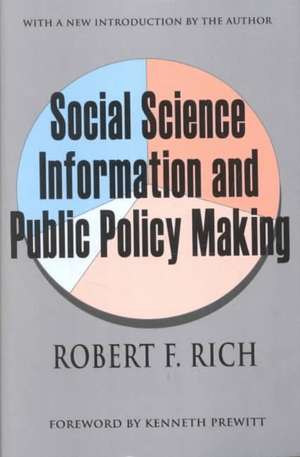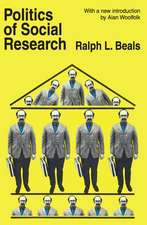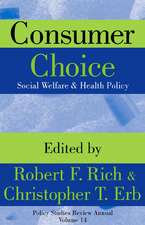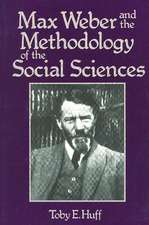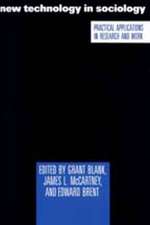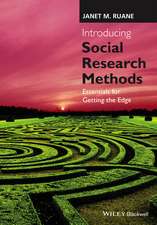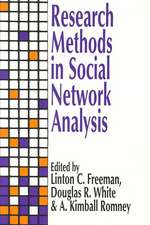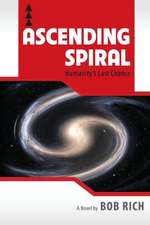Social Science Information and Public Policy Making
Autor Robert F. Richen Limba Engleză Paperback – 30 sep 2001
Rich interviewed both researchers and users of research data over the two-year life of a Continous National Survey (CNS) experiment to discover the extent to which the CNS mechanism was successful and to record the levels and types of use that officials made of the data provided. Rich reveals that factors such as the timeliness, cost, and relevance of data do not guarantee that information will be used. He examines patterns in the actual use of survey data by agency officials and explores key organizational factors, such as the compatibility of information with various bureaucratic interests. He discusses the preoccupation of public officials with bureaucratic issues regarding the ownership and control of information, identifies the incentives that prompt bureaucrats to pass along new information and the government officials' difficulties in developing policies and programs for meeting national needs.
Rich notes that studies of knowledge inquiry systems, found in the research literature of many social science disciplines have been dominated by a "rationalistic bias." This "bias" is expressed in terms of the belief that the act of acquiring information will automatically lead to its use, in turn, automatically leading to improved policy or decisions. He contends that empirical studies of how information is actually used do not support the assumptions of rational choice theory. The new chapter also discusses types of information, knowledge, and use; prospects for the development of learning organizations in government; and the politics of expertise. This book will be of interest to social scientists and public policy makers.
Robert F. Rich is professor of law and political science at the University of Illinois at Urbana-Champaign. He is also professor in the Institute of Government and Public Affairs, and was the director of that Institute from 1986-1997. He is the founding editor of Knowledge: Creation, Diffusion, Utilization (now Science Communication).
| Toate formatele și edițiile | Preț | Express |
|---|---|---|
| Paperback (1) | 280.93 lei 6-8 săpt. | |
| Taylor & Francis – 30 sep 2001 | 280.93 lei 6-8 săpt. | |
| Hardback (1) | 669.94 lei 6-8 săpt. | |
| Taylor & Francis – 15 mar 2018 | 669.94 lei 6-8 săpt. |
Preț: 280.93 lei
Nou
Puncte Express: 421
Preț estimativ în valută:
53.76€ • 58.38$ • 45.16£
53.76€ • 58.38$ • 45.16£
Carte tipărită la comandă
Livrare economică 22 aprilie-06 mai
Preluare comenzi: 021 569.72.76
Specificații
ISBN-13: 9780765807588
ISBN-10: 0765807580
Pagini: 258
Dimensiuni: 152 x 229 x 15 mm
Greutate: 0.36 kg
Ediția:1
Editura: Taylor & Francis
Colecția Routledge
Locul publicării:Oxford, United Kingdom
ISBN-10: 0765807580
Pagini: 258
Dimensiuni: 152 x 229 x 15 mm
Greutate: 0.36 kg
Ediția:1
Editura: Taylor & Francis
Colecția Routledge
Locul publicării:Oxford, United Kingdom
Cuprins
Preface 1. Experiment in the Application of Survey Research 2. Continuous National Survey: Structure and Analysis 3. Development and Funding of the Survey Experiment 4. Planning and Conducting the Project 5. Assessing the Survey Experiment 6. Utilization of the Survey Information 7. Future of Survey Research for Meeting National Needs
Notă biografică
Robert F. Rich is Professor of Law and Political Science at the University of Illinois at Urbana-Champaign. He holds a joint appointment in the College of Law and the Institute of Government and Public Affairs. Rich also holds professorial appointments in the Departments of Politi[1]cal Science and Community Health and in the College of Medicine. From 1986 to 1997, he was Director of the Institute of Government and Public Affairs where he is currently Director of the Office of Public Management.
Descriere
A survey of federal officials reveals the belief that government should make the fullest possible use of social science information-and yet most of the information developed by social scientists winds up in specialized libraries or data banks, where it remains unused
